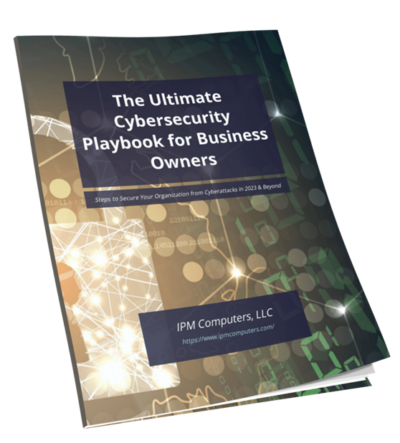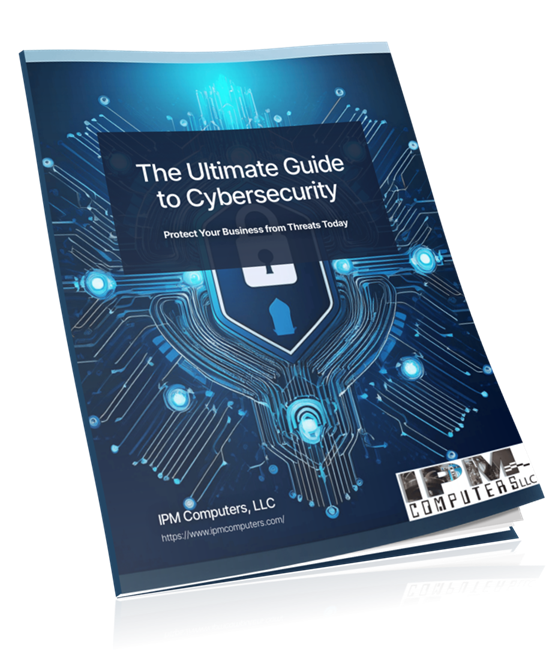Proactive IT management is crucial for CPAs and accounting firms aiming to thrive and can help secure and streamline your company in several ways.
Accounting firms face many IT challenges, from stringent regulatory requirements to the need for data privacy and security. These challenges demand robust technological solutions to maintain compliance and safeguard sensitive financial data, which is where partnering with an MSP that provides Wilmington IT consulting can give you the insights you need to grow.
Technology plays a transformative role in modern accounting by:
- Automating routine tasks, increasing efficiency and accuracy.
- Enhancing data analysis capabilities, providing deeper insights.
- Facilitating seamless communication and collaboration between clients and teams.
Understanding Proactive IT Management
Proactive IT management involves predicting and resolving potential IT problems before they become serious issues. This approach is different from reactive management, which handles problems as they come up. For CPAs and accounting firms, proactive IT management ensures smooth operations and reduces downtime.
The Importance of Cybersecurity
Cybersecurity is a key aspect of proactive IT management in accounting. With sensitive financial information at risk, it’s crucial to defend against cyber threats. Implementing strong security measures like firewalls, encryption, and regular security audits can safeguard client data from breaches.
Ensuring Data Privacy and Compliance
Maintaining data privacy and following regulations is equally important. Accounting firms must comply with strict standards such as GDPR or HIPAA. Regularly updating software, training employees on data handling practices, and conducting compliance audits are essential steps to uphold these standards and protect client trust.
Understanding these components is vital for creating an effective proactive IT strategy, which is essential for any forward-thinking CPA.
Benefits of Proactive IT Management for CPAs
Streamlining Operations Through Automation Tools
Proactive IT management uses automation tools to make operations more efficient in accounting firms. These tools take care of repetitive tasks like data entry, document management, and appointment scheduling, allowing CPAs to spend more time on important activities. By automating these routine processes, firms become more efficient and reduce the chances of human error.
Improving Data Accuracy with AI-Powered Software
One of the key advantages of proactive IT management is the use of AI-powered software. These advanced systems can quickly and accurately analyze substantial amounts of data, ensuring that financial records are correct and up-to-date. AI algorithms can also identify anomalies and inconsistencies in real-time, helping CPAs spot potential problems before they become major issues.
Enhancing Client Communication with Automated Systems
Effective communication with clients is essential for building strong relationships and providing excellent service. Automated systems play a vital role in this by enabling real-time messaging platforms and mobile apps. These tools allow CPAs to communicate promptly with clients, send personalized updates via emails or texts, and create self-service portals where clients can easily access their tax documents. This not only improves client satisfaction but also creates a more transparent and responsive service environment.
The Role of Cloud-Based Solutions in Accounting IT
Cloud computing has become essential for modern CPAs. It offers numerous benefits:
1. Scalability and Cost Efficiency
Cloud-based solutions eliminate the need for expensive on-site infrastructure, providing flexible subscription models that can grow with your firm.
2. Enhanced Security
Data stored in the cloud enjoys advanced security measures such as encryption and regular backups, ensuring compliance with industry regulations.
3. Real-Time Collaboration
One of the most significant advantages is real-time collaboration. Teams can work simultaneously on documents and spreadsheets, streamlining workflows and reducing communication delays. This capability also extends to client interactions, enabling CPAs to provide timely updates and receive instant feedback.
4. Anytime, Anywhere Access
Another key benefit is the ability to access financial data anytime, from anywhere. Whether in the office, at a client’s location, or working remotely, CPAs can securely access crucial information through cloud accounting systems. This level of accessibility not only boosts productivity but also ensures that CPAs can promptly respond to client needs.
Exploring IoT Implications for IT Strategies
The Internet of Things (IoT) offers transformative potential for CPAs and accounting firms. Leveraging IoT in audit processes can lead to more robust audits by enabling real-time data collection and analysis. For example, smart devices such as sensors on inventory systems provide continuous data feeds, allowing auditors to validate financial records with unprecedented accuracy.
Examples of Connected Devices Benefiting Finance Professionals
Fitbits and Apple Watches: These smart devices can track employee productivity and health metrics, contributing to better workforce management.
Smart TVs and Connected Cameras: Facilitate virtual meetings and remote audits, enhancing collaboration without geographical constraints.
Inventory Sensors: Provide real-time updates on stock levels, aiding in accurate financial reporting and supply chain management.
Addressing Security Concerns Related to IoT Usage
Despite the benefits, IoT introduces significant security challenges. Protecting sensitive financial data from cyber threats becomes paramount. Implementing robust cybersecurity measures, such as endpoint protection and regular risk assessments, is essential to safeguard information captured by these connected devices.
Key Technologies Shaping the Future Accounting Practice
1. Blockchain Technology
Blockchain technology is changing the way auditing and bookkeeping are done by making them more transparent and secure. Here’s how it works:
Each transaction is recorded in a decentralized ledger, which means that no single entity has control over it.
This reduces the risk of fraud and errors because multiple parties need to agree on any changes made to the ledger.
The immutable record of transactions simplifies compliance audits, making it easier for regulators to verify financial data.
2. APIs and Integrations
APIs (Application Programming Interfaces) and integrations are tools that help different software applications communicate with each other. In the context of accounting, they play a crucial role in streamlining workflows. Here’s what you need to know:
APIs connect disparate applications, allowing them to share data seamlessly.
This eliminates the need for manual entry, reducing the chances of human errors.
3. Robotic Process Automation (RPA)
Robotic Process Automation (RPA) is a technology that uses bots or software robots to automate repetitive tasks. Here’s how RPA can benefit CPA firms:
- RPA can handle rule-based tasks such as data entry, invoice processing, and reconciliation efficiently.
- By automating these routine operations, accountants can save time and focus on more strategic activities.
This not only enhances productivity but also improves accuracy and consistency in financial reporting.
Challenges to Consider with Proactive IT Management Strategies
Implementing proactive IT management strategies brings numerous benefits, but it also presents unique challenges that CPA firms must address. One of the most significant issues is security concerns. Inadequate security measures can lead to data breaches, jeopardizing sensitive financial information and client trust.
Common risks associated with poor IT management practices in CPA firms include:
- Data Breaches: Unauthorized access to confidential client information.
- Ransomware Attacks: Malicious software encrypting data until a ransom is -paid.
- Phishing Scams: Deceptive emails or messages tricking employees into revealing sensitive information.
Strategies to mitigate security threats and protect sensitive data involve:
- Robust Cybersecurity Protocols: Implementing firewalls, antivirus software, and intrusion detection systems.
- Employee Training: Regularly educating staff on recognizing phishing attempts and safe internet practices.
- Encryption Technologies: Ensuring all data at rest and in transit is encrypted to prevent unauthorized access.
- Regular Audits and Updates: Conducting frequent security audits and updating systems to address vulnerabilities.
Growth Through Proactive IT Management
Managed IT offer a strong solution for firms looking to implement proactive IT management strategies. By outsourcing IT functions, CPA firms can benefit from:
- Improved security measures to protect sensitive data.
- Efficient operations through constant system monitoring and maintenance.
- Flexible solutions customized to changing business needs.
Using managed services for proactive IT management helps accounting firms stay ahead of technological advancements, ensuring their growth and preserving competitive advantages.
Frequently Asked Questions About Accounting IT
What is proactive IT management and why is it important for CPA firms?
Proactive IT management refers to the approach of anticipating and addressing potential IT issues before they escalate. For CPA firms, this is crucial as it helps enhance operational efficiency, ensures data accuracy, and maintains compliance with regulations, leading to better client service.
How does cybersecurity play a role in accounting IT management?
Cybersecurity is vital in accounting IT management as it protects sensitive financial data from unauthorized access and breaches. Implementing robust cybersecurity measures helps CPA firms safeguard client information and maintain trust while complying with data privacy regulations.
What are the benefits of using cloud-based solutions in accounting?
Cloud-based solutions offer numerous advantages for accounting firms, including facilitating real-time collaboration between teams and clients, providing access to financial data from anywhere at any time, and streamlining operations through automation tools that enhance overall efficiency.
How can IoT impact CPA firms’ audit processes?
The Internet of Things (IoT) can significantly transform audit processes by enabling real-time data collection from smart devices. This allows for more robust audits and improved supply chain management, although firms must also address security concerns related to the integration of connected devices.
What key technologies should CPA firms be aware of for future practices?
CPA firms should pay attention to transformative technologies such as blockchain for auditing and bookkeeping, APIs for streamlining workflows in accounting software systems, and Robotic Process Automation (RPA) to automate repetitive rule-based tasks, enhancing overall productivity.
What challenges might CPA firms face with proactive IT management strategies?
Usual challenges include security concerns stemming from inadequate security measures and the risks associated with poor IT management practices. To mitigate these risks, CPA firms should implement comprehensive security strategies that protect sensitive data while ensuring compliance with industry regulations. Consider managing IT for expert advice and service.
Need Help Optimizing IT Strategies?
A reliable network is essential for CPA operations. Avoid costly downtime issues by working with IPM Computers to keep your network in top shape. Our team of expert technicians can put in place monitoring and other best practices. We’ll ensure your network runs smoothly and fully supports all your needs.
Contact us today to schedule a chat about improving your IT Strategies.
Phone: (910) 463-4299
Email: [email protected]






